- Home
- Vicki Delany
Gold Digger: A Klondike Mystery Page 2
Gold Digger: A Klondike Mystery Read online
Page 2
Dawson produced nothing but gold. No food, no clothing, no mining equipment. Everything the town needed arrived by steamship or on rough rafts powered by poles of newly-hewn wood and men’s aching backs. A goodsized crowd could always be expected to show up at the docks in anticipation of anything that might prove of interest. Or of profit.
Sterling and Angus stood to one side of the pack, nodding to the townspeople. The river was thick with makeshift boats bringing newcomers from all over North America, from all over the world.
“What we’re doing, son,” Sterling explained, “is watching. See who gets off the boat and make sure they’re not here to cause trouble.”
At first Angus stood still, only his eyes moving as he tried to follow the stream of humanity disgorging from the steamship into the milling crowd. But before long, his legs started to get stiff and his right foot fell asleep. He shook his leg to bring some feeling back.
The constable laughed. “A policeman’s life isn’t always exciting, son. Boring, more often than not.” He stopped talking as someone caught his attention. Aged about sixty, the newcomer was a good deal older than most people who came to Dawson, but still not as old as some. He was welldressed, although his wool suit could do with a good laundering, and his grey-streaked beard and hair needed trimming. He stood solidly beside a pile of nearly-new luggage, negotiating porter’s fees with men who’d rushed to the docks to offer their labour.
Sterling wandered over; Angus trotted behind.
“I want the finest hotel in town.” The newcomer signalled to two of the workers to pick up his bags. The crowd pushed and shoved around him. Angus took an elbow in the back and lurched forward. He would have fallen had not the press of men on either side propped him up.
The man saw Angus stumble. “You, boy,” he said. “I’m here on behalf of the San Francisco Standard, and I’m hoping you can tell me the name of the best place in town for a fellow to hear the local news.”
“Paper’s called the Klondike Nugget, sir,” Angus said in a low voice, his cheeks turning pink. “You go down…”
“Don’t want a newspaper, boy. A reporter doesn’t get his stories from the newspaper office. I’m asking where’s the best place to hear the news from them that’s making it, and I’ve got a dollar if you can tell me.”
Angus held out his hand, apparently forgetting that he was pretending to be a Mountie. “The Savoy, sir. The finest, most modern establishment in London, England, transported all the way to the Yukon.”
The reporter pressed a tattered American dollar bill into Angus’s hand. “And where is this Savoy?”
“Front Street, sir,” Angus said, stuffing the note into his pocket before turning to point. “Just past Queen Street. Right over there. Big sign out front. “
Sterling stepped forward. “Come to write about our town have you, Mr…”
“Ireland, Jack Ireland. Pleased to make your acquaintance, Sergeant.” The man held out his hand. Sterling took it. They sized each other up.
“Constable Sterling. North-West Mounted Police. Welcome to Dawson, Mr. Ireland.”
“I’d say it’s a pleasure to be here, Constable. But I’m not yet sure that’s the truth.” The reporter looked around, taking in the press of men and boys openly listening to the conversation, the naked hillsides, the mud. Everywhere, the mud. He swatted a mosquito that had settled on his fleshy neck. “But it sure is a relief to come to the end of that miserable trip. This Savoy of yours, boy, is it a hotel?”
“No, sir. It’s the finest dance hall, bar and gaming house in Canada. Maybe in the world.”
Ireland chuckled. “I’ll believe that when I see it. What hotel would you recommend, son?” He held out another dollar.
“The Richmond, sir.” Angus took the bill. The reporter snapped his fingers at the men hovering over his luggage. “You two, take my bags to the Richmond. I’ll be along in a minute. What hours does this Savoy keep, son?”
“Huh?” “He means when does it open,” Sterling said.
“Oh. Ten o’clock. Sir.”
“Not till ten?”
“Ten in the morning,” Sterling explained. Ireland laughed a deep, hearty laugh. His red beard, liberally streaked with grey, shook, and his open mouth showed a row of small teeth. A single gold tooth caught the sun. His laugh was as contagious as his surname would suggest. It rolled over the watching crowd until everyone was chuckling along. Even Angus smiled. Only Sterling failed to participate in the general merriment.
When he regained control of his breathing, Ireland wiped his eyes. “I must say, my boy, this sounds like my kind of town. Now, I’d better follow those oafs to the hotel, or I’ll never see my luggage again. Perhaps I’ll run across you later at this dance hall of yours.”
“I don’t think so,” Sterling said. “Children aren’t allowed in the dance halls.”
Ireland looked shocked. “Would’ve taken you for much older than that, lad.” He winked at Angus. The boy flushed.
The crowd separated to allow the reporter from the San Francisco Standard through.
Sterling and Angus watched him go.
Show over, the throng ebbed away. Crates of cargo were being unloaded from the bowels of the steamship, and the townspeople were eager for a glimpse of the contents.
“Two dollars is a lot of money,” the policeman said. “More than some men with families to support make in a day.”
“Do you want me to give it back, sir?”
“No. A fool and his money are easily parted, and Ireland’s come to the right place for that. And there’s nothing wrong with directing him to your mother’s either. Some people would say that the Savoy is the best dance hall in Dawson. But if you want to be a policeman, Angus, think about this: Not many men give away money for nothing, although sometimes they try to make it look that way. But there comes a day when they expect to be paid back. And you don’t want to be owing them.”
Angus looked at the Mountie. “But how could I pay him back, Constable Sterling? I don’t have any money of my own.”
Sterling grinned and tousled the boy’s blond head. Another few months, and Angus would be too tall for headrubbing. The way the boy was growing, give him another year and he’d be taller than Sterling. It wouldn’t be long before Angus would be encountering men wanting to prove themselves by starting a fight with the boy, not noticing, or caring, that the childish face didn’t quite match the man’s body.
Up ahead, a drunken prospector stumbled in the mud. He shouted abuse at an elegantly dressed man innocently passing by and took a wild swing. Unfortunately for the drunk, the man had lost over a thousand dollars on the roulette wheel at the Monte Carlo the previous night and was looking for someone, or something, on which to take out his anger. Before he knew what was happening, the drunk was scrambling in the mud and the gambler’s boot was back, readying for a kick to the head. Sterling gave a shout of warning and ran.
Chapter Four
Promptly at five o’clock, I walked through the doors of the Savoy, barely avoiding being hit by a drunk that Ray and one of the bartenders were throwing out into the street.
I scarcely glanced at the patron as he flew past. Ray grinned at me. Despite the poor light, his stiff white shirt was so white it practically gleamed, and he’d combed his few strands of greasy hair. He returned to the bar, where men were lined up three deep.
The Savoy Saloon and Dance Hall. How I loved every ugly, hastily constructed, tottering, hideously decorated square foot of it. So cheap and gaudy, my acquaintances in London would have laughed out loud to see it. But it was mine. And there was nothing cheap about the money the place made for Ray and me.
The customers parted respectfully as I sailed into the room. I love a good parade, as long as I’m at the centre of it.
Barney, one of my regular customers, was slumped on a stool, his upper torso lying across the mahogany bar. But he kept talking as he entertained the younger men with tales of George Carmack, and the Indians Jim and Charlie, and
of the first strike on Rabbit Creek, soon to be renamed Bonanza. Half of the men in his audience regarded him with eyes full of admiration, eager to hear again the story they’d heard a hundred times before. The other half were disbelieving and turned from the old prospector in disgust or dismissal. But Barney’s stories were all true—embellished perhaps, but still true. Barney had found gold. I’d say he wasted it on drink, dance-hall girls, and the sad women who plied their trade in the cribs of Paradise Alley, but I suppose he considered it to be money well spent. He’d had sixteen gold nuggets made into a belt for a birthday present to give to a girl working at the Horseshoe. She’d thanked him with a chaste kiss on the cheek, and the old fellow had just about fainted with the sheer joy of it. These days he passed his nights, and most of his days, in Front Street bars like mine, telling his stories and earning his whisky by the strength of his reputation.
A puddle of spilled liquor was spreading across the floor beneath the centre table, and I was about to signal to one of the bartenders to fetch a mop when the door flew open. A large man stood there, his eyes taking in the room. He was old for this gold-rush town, over sixty probably, and immaculately dressed in pin-striped trousers, a fresh white shirt and black jacket with stiff black waistcoat crossed by a watch chain of thick gold. A heavily-starched collar and perfectly straight bow tie clenched his fleshy neck with such force that it looked as if they were trying to strangle him. His black hat was clean and placed directly in the centre of his head. His face was tinged pink from a recent shave.
Sweeping off his hat in a flowing, liquid movement that reminded me of an actor in a stage show I’d seen in London many years ago, he approached me. It had been a very bad actor in a very bad play, which for some unknown reason had been the hit of the season.
“Indeed, I am at the right place,” he said, “for although your establishment is somewhat less than imposing from the outside, one glimpse of your ladyship and I understand that this must be the place of quality in Dawson.” His freshly cut red hair was faded and heavily streaked with grey.
I laughed. “Thank you, but I don’t think anyone has mistaken me for a ladyship before.” That was not exactly true. There had been that embarrassing encounter in Bath in 1889 with Lady Rickards-Sommerfield. Not embarrassing for me, of course, but for my gentleman companion it had marked the beginning of a downward spiral into social disgrace.
“Allow me to introduce myself.” He took my hand and touched it lightly to his lips. He wore immaculate white gloves. You didn’t see those in Dawson much. “Jack Ireland. San Francisco Standard.”
I snatched my hand back. “A newspaper reporter?”
Ireland misinterpreted my reaction. “Don’t worry, dear lady. I can see that your fine establishment is one to be celebrated. It will make wonderful background for my stories about Dawson and the Klondike.” His eyes passed over me and surveyed the room.
Following Ireland’s gaze, I saw my place.
It wasn’t much—a long mahogany bar lined one side, a few tables were scattered around the floor. The wallpaper in the saloon was an ostentatious red that clashed horribly with my best dress, but I’d chosen it nevertheless, partially because there was not much else to buy, but also because to uneducated, uncultured miners and labourers heavy red wallpaper spells “class”. The centre of the wall behind the bar was occupied by a portrait of Queen Victoria, looking every year of her advanced age. In honour of the two primary nationalities making up the population of the Yukon, we had stuck a Union Jack into the right of the frame and the Stars and Stripes into the left. On either side of the monarch hung a large painting of a voluptuous nude female, one black-haired, one fair.
At the Savoy we cater to all tastes.
I had never met our beloved monarch, but judging from stories I’d heard, some of them directly from the excessivelyindulged mouth of her eldest son, she wouldn’t have approved of us in the least. By London standards, even by Toronto standards, it was a hovel. But we made more in a night than most gaming house proprietors in Toronto or London could dream of earning in a week. We had so much custom that I sometimes wondered how everyone managed to fit inside. And no matter how much we charged, the customers kept streaming through the doors.
“Madam.” Ireland touched the brim of his hat and went to the bar. The men could tell a swell when they saw one, and they shifted to let him through. He shouted for a drink for himself and one for the men on either side.
I caught a glimpse of myself in the ornate, gilt-edged mirror hanging on the back wall. A large crack streaked across the entire width of the glass. The mirror had been dropped when it was hung, but this was Dawson: we were grateful for the slightest touch of opulence, and no one looked at anything very closely, not wanting to see the reality underneath.
I tugged lightly at my waist to pull the bodice lower and display my necklace better. A clean-shaven young man blanched and tossed down his drink in one swallow. He joined the crowd at the bar and shouted for another.
I went into the dance hall to check that Helen had laid out the chairs for the evening’s performance. When I returned, Jack Ireland, of the San Francisco Standard, was asking Rupert Malloy, one of the men enjoying the free liquor, how long he’d been in the Klondike. I knew the answer—two weeks. But Rupert could play the game, and he began spinning a tale of prospecting in the wilderness, fighting off bloodthirsty Indians, ravenous wolves, and greedy prospectors for a chance at the gleaming yellow metal. He paused and fingered his empty glass with a deep sigh. Ireland snapped his fingers at Sam Collins, the head bartender and our oldest employee.
“Don’t waste your time listening to Rup here,” said a man standing behind Ireland’s shoulder. “You want the real stories of the strike, can’t do no worse than speak to ol’ Barney over there.”
Ireland looked at Barney, almost snoring with his head resting on bar. At the sound of his name, Barney’s head jerked up. “So Injun Jim, he says to me…”
“Thanks for the tip, friend.” Ireland signalled for Sam to pour a drink for his informant and slid a few feet down the bar. The crowd shifted, like the waters of the Yukon River on a still day when a raft drifts by. Sam Collins’s weather- and life-worn face had gone pale, and he stared at the floor as he placed the glasses on the counter.
“Young man there says you know some stories of the strike of ’96.” Ireland slapped Barney on the back. The old man belched.
“Another drink for my friend here,” the newspaperman shouted.
Barney lifted his freshened glass in one worn paw. “Summer of ’96,” he said before toppling forward, planting his face into a puddle on the shiny mahogany bar.
Ray moved before I had time to snap my fingers. Sam had turned his attention to a newly arrived pack of Yankees, still wet behind the ears from river water, so Ray yelled at the new boy to give him a hand. Together they lifted Barney off his stool. The crowd parted to let them through.
Ireland picked up his drink and walked over to me. “Bet you have some stories to tell.” He spoke directly to my cleavage.
“No,” I said. “Not a one. If you’ll excuse me…”
He grabbed my upper arm. “I’ll make it worth your while.” Talk in the room stopped as abruptly as if it had been scripted. Everyone stared at us, frozen in place, mouths open, glasses half-raised. They looked as if they were performing in a tableau for the entertainment of the Prince of Wales.
I stared at Ireland’s hand, before lifting my eyes to his face. “Release me,” I said.
He looked at me, and I tensed, expecting trouble. He backed down and let go. As one, the clientele let out a single breath and returned to their drinks.
Ireland knew he’d lost face. His cheeks were red, his eyes small, dark and cold. His fists were clenched tightly at his sides, and a vein throbbed in his neck.
I smiled my best dance hall hostess smile. “Have you had a look into our gaming rooms, yet, Mr. Ireland? The finest roulette wheel in Dawson. And of course, we have faro and poker as well.�
��
The reporter didn’t return my smile. “Quite the piece of work, aren’t you, Miss…?” His grammar and accent seemed to shift, depending on to whom he was speaking. He’d been excessively formal with me when first we met, his speech turning coarser and rougher when he talked with the men around the bar.
“Mrs,” I said. “Mrs…” I bit my tongue, remembering, just in time, what I was talking to. A newspaper reporter.
“Mrs. what?” He snapped, reading layers of meaning into my hesitation, a skill he would have honed to perfection in order to succeed in his business.
There was no point in not telling him my name. Everyone in town knew it. Besides, it was unlikely that anyone in London read North American newspapers, and in Toronto I’d used another name.
“Mrs. Fiona MacGillivray, at your service, sir. Please allow me to escort you into the gambling room.”
“MacGillivray. I’ll remember that.” He turned on his heels, and the bar hangers-on parted to let him through.
Ireland slapped his money down on the counter. But this time no one rushed to serve Mr. Ireland of the San Francisco Standard. The new bartender, so new I didn’t know his name, had returned and was busy at the far end. There was no sign of Ray, and Sam was dusting off the whisky bottles behind the bar as if we didn’t have a customer in the place. The man wasn’t deaf or blind, surely he could see the anxious faces of rows of would-be-drinkers reflected in the glass protecting her Majesty’s visage, which hung directly in front of his face.
“Bartender!” Ireland shouted, his face turning redder, the too-ample flesh around his tight collar bulging at the insult of being ignored when he had a full bar watching him. Sam turned and asked a short, fat man with a full glass in front of him if he’d like another. Our head bartender was very pale.

 Silent Night, Deadly Night
Silent Night, Deadly Night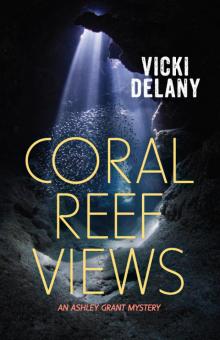 Coral Reef Views
Coral Reef Views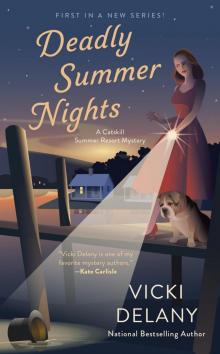 Deadly Summer Nights
Deadly Summer Nights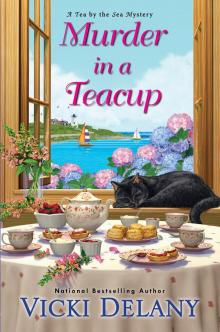 Murder in a Teacup
Murder in a Teacup Whiteout
Whiteout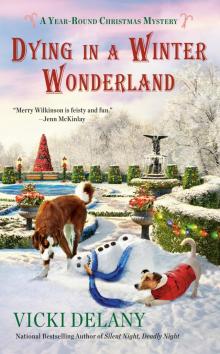 Dying in a Winter Wonderland
Dying in a Winter Wonderland Tea & Treachery
Tea & Treachery Rest Ye Murdered Gentlemen
Rest Ye Murdered Gentlemen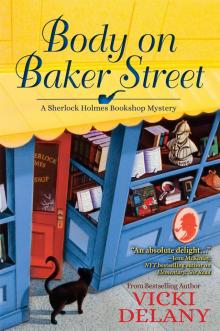 Body on Baker Street: A Sherlock Holmes Bookshop Mystery
Body on Baker Street: A Sherlock Holmes Bookshop Mystery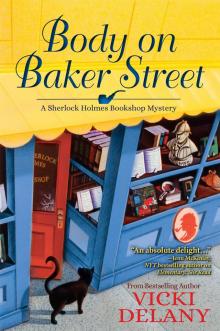 Body on Baker Street
Body on Baker Street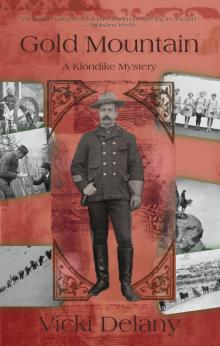 Gold Mountain
Gold Mountain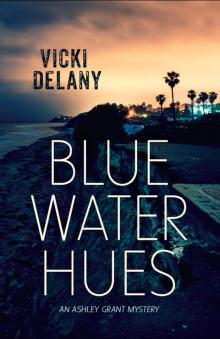 Blue Water Hues
Blue Water Hues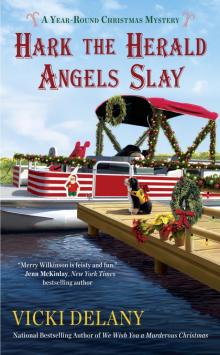 Hark the Herald Angels Slay
Hark the Herald Angels Slay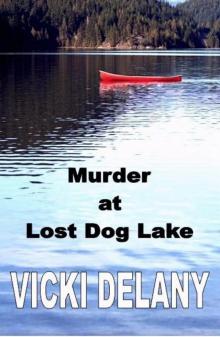 Murder at Lost Dog Lake
Murder at Lost Dog Lake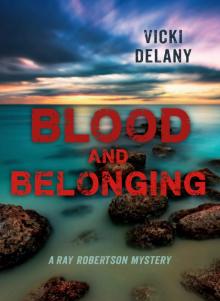 Blood and Belonging
Blood and Belonging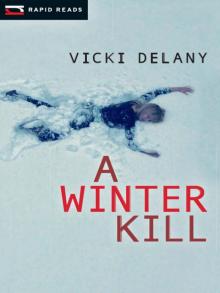 A Winter Kill
A Winter Kill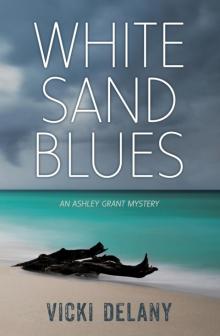 White Sand Blues
White Sand Blues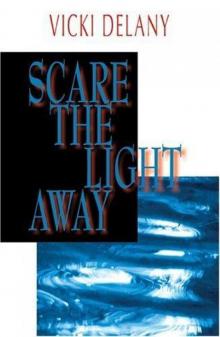 Scare the Light Away
Scare the Light Away Burden of Memory
Burden of Memory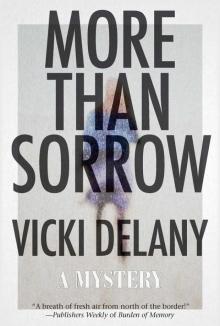 More Than Sorrow
More Than Sorrow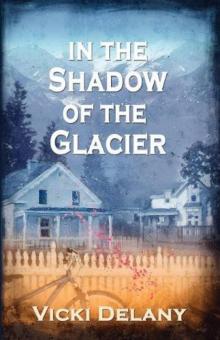 In the Shadow of the Glacier
In the Shadow of the Glacier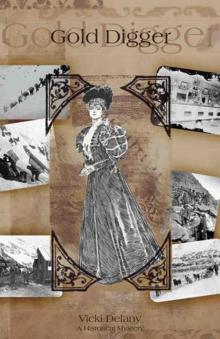 Gold Digger: A Klondike Mystery
Gold Digger: A Klondike Mystery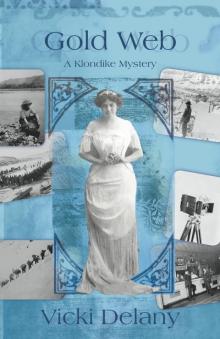 Gold Web
Gold Web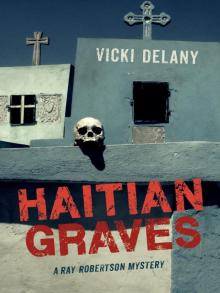 Haitian Graves
Haitian Graves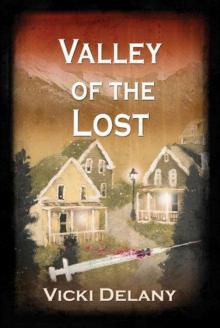 Valley of the Lost
Valley of the Lost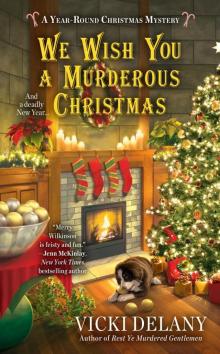 We Wish You a Murderous Christmas
We Wish You a Murderous Christmas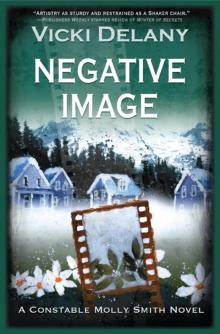 Negative Image
Negative Image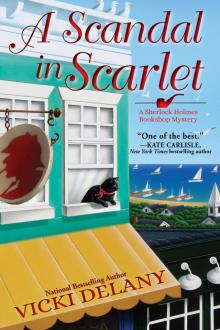 A Scandal in Scarlet
A Scandal in Scarlet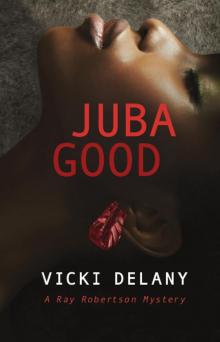 Juba Good
Juba Good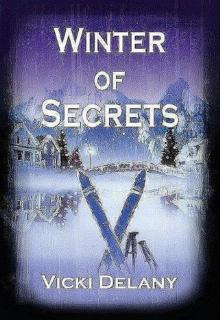 Winter of Secrets
Winter of Secrets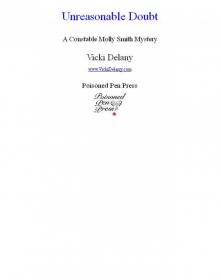 Unreasonable Doubt
Unreasonable Doubt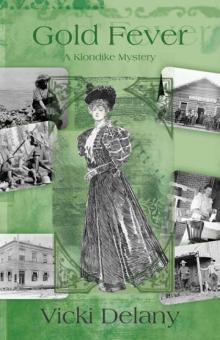 Gold Fever
Gold Fever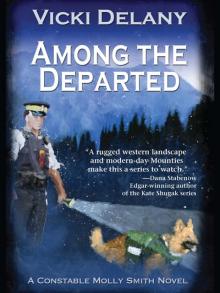 Among the Departed
Among the Departed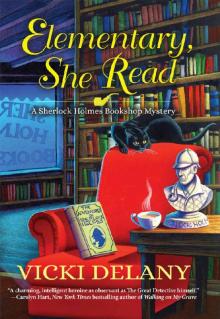 Elementary, She Read: A Sherlock Holmes Bookshop Mystery
Elementary, She Read: A Sherlock Holmes Bookshop Mystery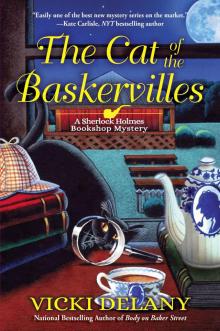 The Cat of the Baskervilles
The Cat of the Baskervilles